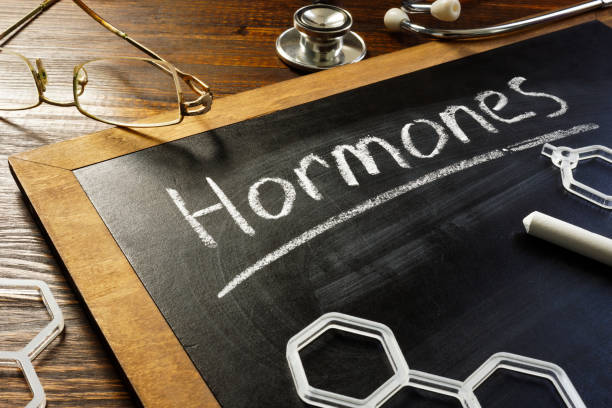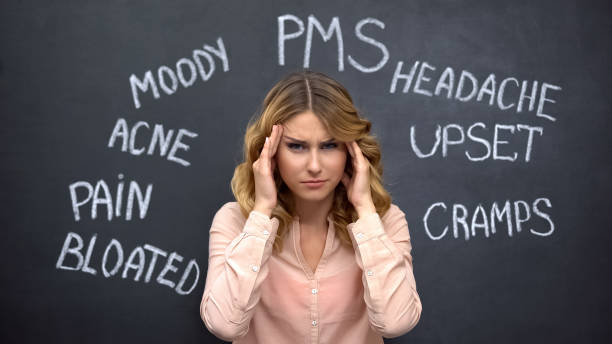What are the causes of hormonal imbalances, and how do you know if your hormones are imbalanced? We now hear about hormonal imbalances more often than before, so it is expected that you will be asking these questions.
Hormonal imbalance occurs when too much or too little hormones are in the blood. Hormones regulate various processes in the body, so if they are not balanced, it can lead to different health challenges.
Fortunately, we have put together a comprehensive guide to help you learn about the causes of hormonal imbalance and what you should do to balance your hormones, so keep reading to gain all the information you need.
See also: 20 Simple Wellness Tips for Healthy and Happy Living
What are Hormonal Imbalances?
Hormones are produced by the endocrine system; they are chemicals that carry messages throughout your body to help control various functions like reproduction, metabolism, digestion, etc., and they maintain balance within your body.
Hormones tell your body what to do at every given time and are essential for a healthy and well-functional body system.
However, the endocrine system makes the right amount of hormones your body needs. When it makes too much or too little, you will develop hormonal imbalances, creating health several issues. There are many reasons why this can happen, and we will explore all that as we continue in this guide.

What are the Symptoms of Hormonal Imbalance?
The common signs of hormonal imbalance are as follows:
- Vaginal dryness.
- Irregular periods.
- Weight gain.
- Explained weight loss.
- Bloating.
- Low sex drive.
- Insomnia.
- Mood swing.
- Infertility.
- Fatigue.
- Pain, swelling or stiffness of joints.
- Uncontrolled sweating.
- Constipation.
- Increased thirst and urination.
- Muscle weakness, tenderness, aching or stiffness.
- Thinning hair or fine brittle hair.
- Dry skin.
See also: What Are The Causes Of Anxiety
What are the Causes of Hormonal Imbalance?
Normally, hormones are always balanced to ensure normal physiological functioning. Still, it is essential to note that some hormonal imbalances occur naturally in women due to menstrual cycle, menopause and pregnancy, but things usually return to normal after some time.
However, aside from these natural occurrences, the following factors explained below are the major known causes of hormonal imbalance.
Thyroid Problems
The thyroid glands are part of the endocrine system that secretes certain hormones; when it becomes underactive or hyperactive, it can cause imbalances in the levels of hormones it will produce in your body. These thyroid problems can result from tumours, medication, autoimmune conditions and more.
Stress
Stress makes your body produce cortisol; when you are agitated and overly stressed, your body goes into survival or fight-or-flight mode, which is triggered by the secretion of cortisol. If this stress continues, too much cortisol will be secreted over some time and can cause an imbalance of other hormones in your body.
Birth Control
Some birth controls are referred to as hormonal birth controls because they contain some hormones which can affect the natural balance of hormones in your body. When you stop using hormonal birth control methods, it will take some time for your body to rebalance its hormones. This is one of the most common causes of hormonal imbalance in women and can result in digestive problems, irregular periods, lack of periods, weight gain, heavy bleeding and more.

Tumours
Tumours are abnormal cell growth in the body that may be cancerous or non-cancerous; some rare tumours in the glands or cells that produce hormones are also one of the very common causes of hormonal imbalance. Some of the endocrine tumours include
- Adrenocortical carcinoma (ACC).
- Medullary thyroid cancer (MTC).
- Carcinoid tumours.
- Paraganglioma
- Pheochromocytoma
Damage or Injury to an Endocrine Gland
Aside from tumours, it is also possible for any of the endocrine glands to be damaged or injured, and this can impair the production of hormones. Some of such situations include
- Accidental damage from surgery.
- Bacterial or viral illness.
- Excessive blood loss or lack of blood flow to an endocrine gland.
- Radiation therapy for cancer treatment.
- Brain or head trauma (also called traumatic brain injury or TBI).
Eating Disorders
Some eating disorders, such as anorexia, can affect your body’s secretion of hormones and change your hormone levels. This can cause problems like low bone density, low estrogen, and more.

Autoimmune Conditions
An autoimmune disease is a condition where your immune system accidentally starts to attack a part of your body instead of protecting it. It is unclear how this happens; sometimes it might be due to a trigger like infections, but If it occurs in the glands or organs that secrete hormones, it can cause hormonal imbalance.
See also: 30 Healthy Snacks Recommended By A Dietitian
Now that you understand the most common causes of hormonal imbalance, you may be wondering how to fix or treat it to ensure your hormones return to normal.
For higher-than-normal hormone levels, the treatment options include medications to regulate it, radiation therapy, surgery or a combination of any of these. For example, if a tumour causes a hormonal imbalance, some drugs can help shrink it, and surgery can completely remove the tumour.
So, your healthcare provider will certainly provide the best treatment option based on the cause of your hormonal imbalance and the affected hormones.
If you notice any of the symptoms we discussed above, do not hesitate to seek medical attention; hormonal imbalance is fully treatable but can cause severe problems if left untreated.




Fat